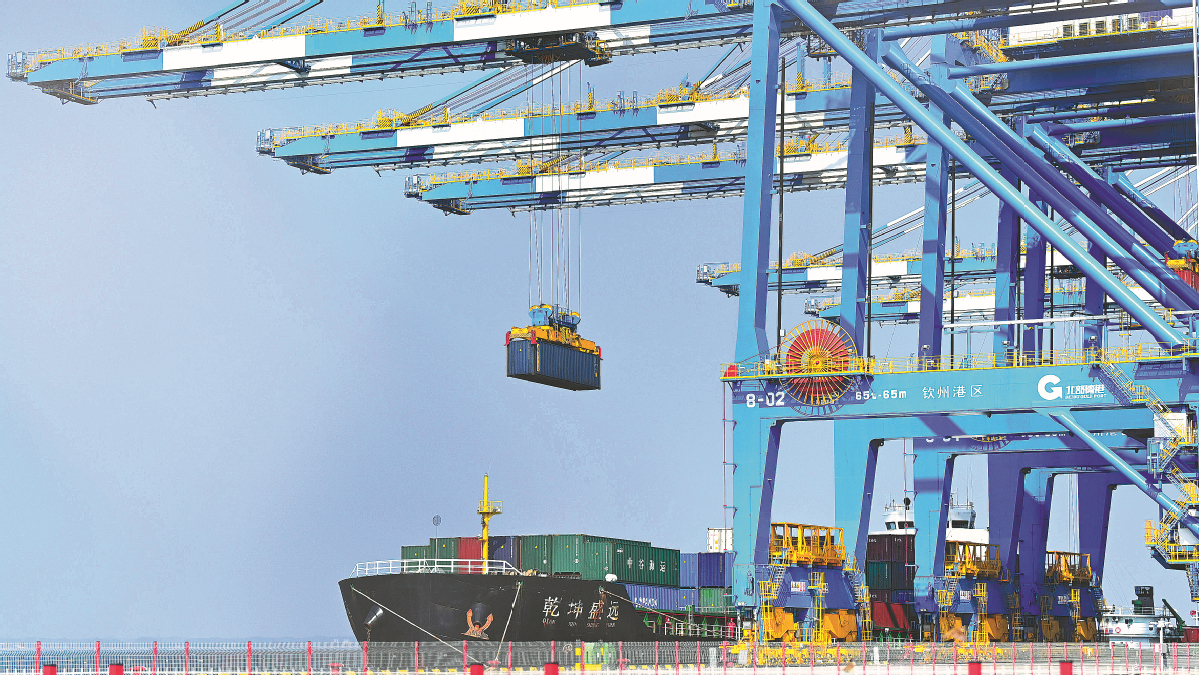More collaborations urged between nations


Experts call for mutual investments to tackle geopolitical risks, bring prosperity
To counter the growing risk of geopolitics, it is important to have more mutual investments and collaborations between countries and regions to truly achieve global economic prosperity, experts say.
They made the remark at the 2023 Global Chinese Economic & Technology Summit, which kicked off in Shenzhen on Monday. The two-day summit, themed Great Reset: Powering Growth, Technology and Regional Prosperity, brought together a diverse array of thought leaders, business magnates and government officials from around the world.
"As the risks of geopolitics have greatly increased, such as the continuation and escalation of the Russia-Ukraine conflict, there's cloud over the post-pandemic global economic recovery," said Lim Gait Tong, president of China-ASEAN Business Association.
Lim said the way to deal with the risks is to encourage more regional investments, stressing the important role that the Regional Comprehensive Economic Partnership, or RCEP, has played in advancing economic and trade opportunities among its members.
Michael Yeoh, organizing chairman of the summit and president of KSI Strategic Institute for Asia Pacific in Malaysia, said the world has entered a new era of technological advancement and regional cooperation, so "the event also embodies the spirit of progress and collaboration".
The summit focused on the 4Ps — peace, partnerships, people and planet for global shared prosperity, he added.
In the opening address, Anifah Aman, former minister of foreign affairs of Malaysia, said, "In an era characterized by transformative changes, unforeseen challenges and remarkable opportunities, the relationship between ASEAN and China has transcended conventional cooperation, evolving into a dynamic and strategic partnership with the potential to redefine the trajectory of regional and global economics."
China, as the paramount trading partner of ASEAN and a notable investor within the shared ecosystem, stands as a resounding testament to the intricacies of the economic interdependence, he said.
Transparent mechanism
In recent discussions, ASEAN member states and China not only explored elements to be incorporated into the upgraded ASEAN-China Free Trade Agreement structure, but also delved into the dispute settlement process, underlining their commitment to a fair and transparent mechanism for conflict resolution, Aman said, hailing the ACFTA as "a cornerstone of our economic integration".
Sok Siphana, senior minister of Royal Government of Cambodia, reflected on the milestones of China and ASEAN relationship since its start in 1991 and upgrade in 2003, and also looks forward to the future.
At the China (Greater Bay Area)-ASEAN Roundtable, discussions were facilitated on strengthening partnerships between China and ASEAN to promote regional cooperation and growth. The cooperation among RCEP members in the digital and green economy for a sustainable shared future was also stressed.
Senior Fellow at the Singapore Institute for International Affairs, Oh Ei Sun, said: "China and ASEAN have come a long and fruitful way in building up a comprehensive relationship with each other. It is time, especially for the younger generations on both sides, to take these close ties to ever higher and mutually beneficial grounds."
Kirida Bhaopichitr, director of Economic Intelligence Service at Thailand Development Research Institute, noted the strong economic ties between China and Thailand in trade, investment and tourism.
Wang Huiyao, founder and president of Center for China and Globalization, said via video link that in the spirit of economic and technology cooperation, China and ASEAN have a huge potential.
Guo Wanda, executive vice-president of the China Development Institute, said this year marks the 10th anniversary of the launch of the Belt and Road Initiative, and the RCEP has entered the stage of full implementation, which will usher in more new opportunities for China-ASEAN cooperation.
"As one of the most open and dynamic regions in China, the Guangdong-Hong Kong-Macao Greater Bay Area and ASEAN countries are blessed with a good foundation for cooperation in terms of geographical location, industrial distribution and personnel exchanges," he said.
The summit, which brought together about 50 prominent speakers from ASEAN countries and other parts of the world, was organized by the China Development Institute, Shenzhen, and the KSI Strategic Institute for Asia Pacific.
































